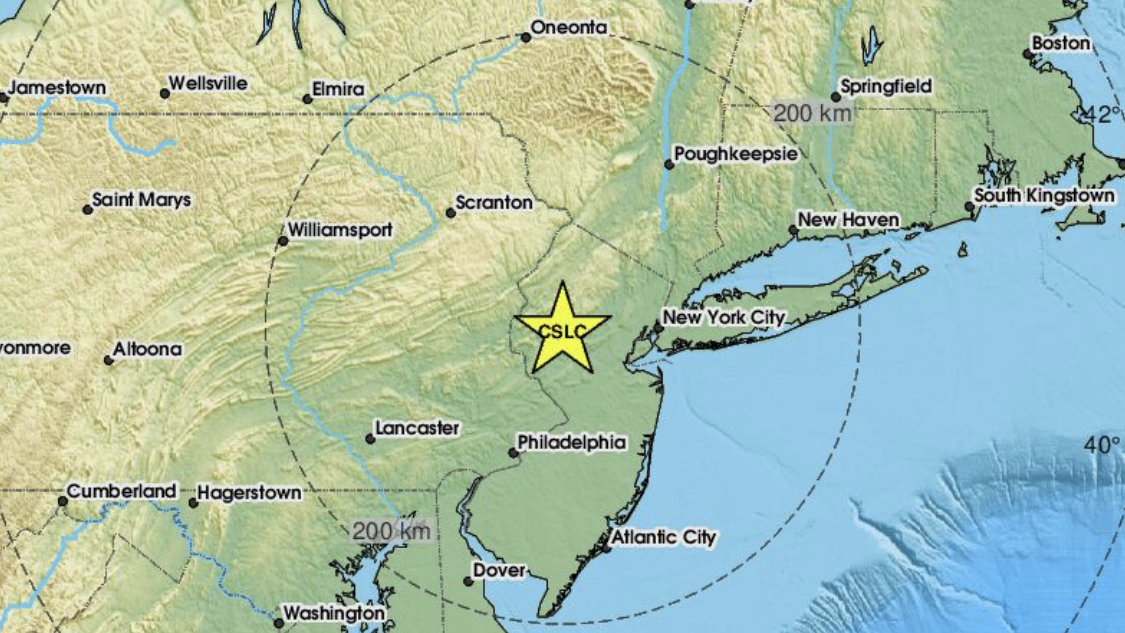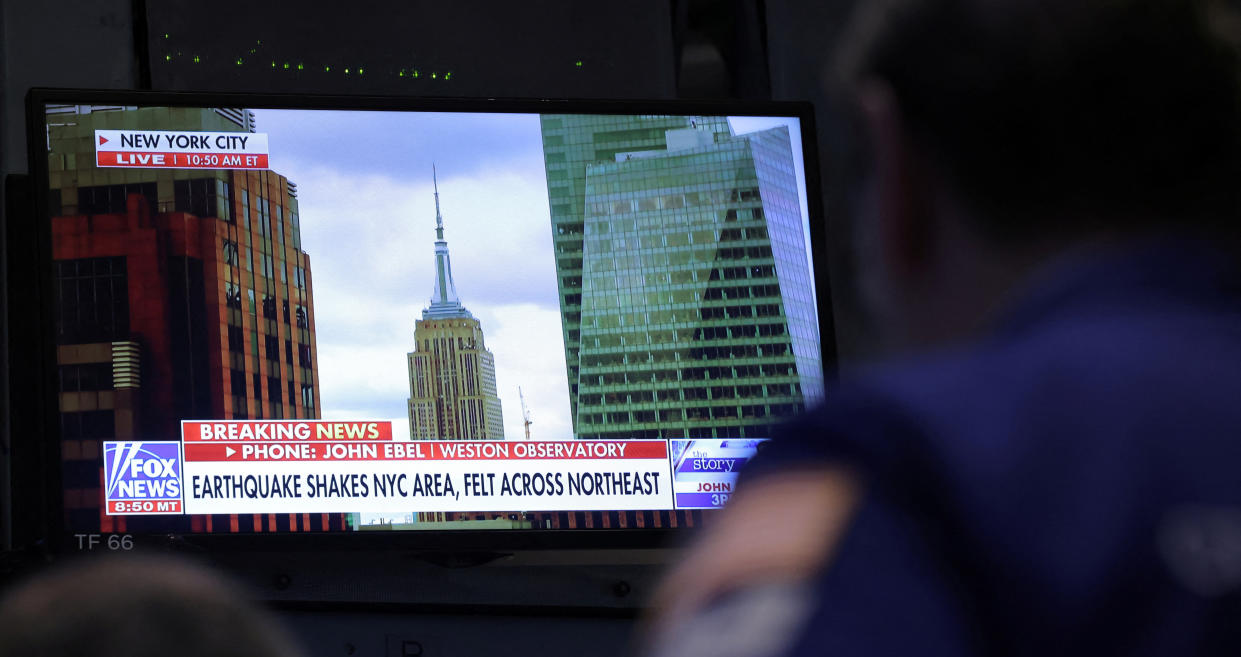4.0 magnitude aftershock hits New Jersey after 4.8 earthquake rocks Northeast
An earthquake rattled the Northeastern United States on Friday morning — and a strong aftershock struck in the early evening, around eight hours later.
According to the U.S. Geological Survey, the initial 4.8 magnitude quake was centered 7 kilometers north of Whitehouse Station, N.J., about 50 miles west of New York City, at a depth of 4.7 kilometers. It could be felt as far as south as Washington, D.C., and as far north as Boston.
The USGS reported the aftershock, felt just after 6 p.m. ET, was 4.0 magnitude and centered near Gladstone, N.J.
🚨 What services were impacted?
Ground stops were issued at numerous airports, including Newark, JFK and Baltimore/Washington (in Maryland), while crews assessed any potential structural damage. New Jersey Transit said rail service was subjected to up to 20-minute delays in both directions "due to bridge inspections" following the earthquake.
But there were no service disruptions to Amtrak or the New York City subway system.
🫨 What people felt

Many New York City residents took to social media to report feeling their apartments shaking.
Did we just have an earthquake?! NYC
— Jessica Chastain (@jes_chastain) April 5, 2024
Anne-Marie Green, an anchor for CBS News, said that "it felt like a subway train was passing through the studio."
So apparently it was an earthquake? All I know is @vladduthiersCBS and I were sitting at the anchor desk and suddenly it felt like a subway train was passing through the studio. Did you feel anything? #earthquakepic.twitter.com/uc3NdwhOhg
— Anne-Marie Green CBS (@AMGreenCBS) April 5, 2024
"That was my 2nd Manhattan earthquake & longer than any earthquake I’ve experienced in LA," MSNBC host Lawrence O'Donnell wrote on X.
I AM FINE
— Empire State Building (@EmpireStateBldg) April 5, 2024
📢 What officials are saying

The White House said that President Biden had been briefed on the earthquake and that the administration was in touch with federal, state and local officials.
At a press briefing, New York City Mayor Eric Adams said that there were no reports of damage and that his team was still assessing the impact. The likelihood of aftershocks is low, Adams said, but New Yorkers should stay alert and follow safety precautions.
"We're ready for the unexpected," the mayor added. "This is New York City."
The city sent an emergency alert at 11:02 a.m. — about 40 minutes after the earthquake struck. A second alert warned New York City residents of potential aftershocks.
Also see: 3 things to do during an earthquake
At an earlier briefing, New York Gov. Kathy Hochul said that her team was continuing to assess critical infrastructure, including roads and bridges, for any potential damage.
Hochul said that she had been in touch with the White House and that a representative with the U.S. Department of Homeland Security who had reached out told her that he felt had the earthquake in Baltimore.
"It's been a fairly unsettling day, to say the least," Hochul said.
New Jersey Gov. Phil Murphy said that his office activated the state's emergency operations center to assess any potential damage.
"Please do not call 911 unless you have an actual emergency," Murphy added.
Speaking to reporters as he left the White House en route to Baltimore to meet with first responders and the families of the victims of last week's bridge collapse, Biden said he had spoken with Murphy about the earthquake.
“He thinks everything's under control,” Biden said. “He’s not too concerned about it, the governor of New Jersey, so things are all right.”
🔎 How common are earthquakes in the Northeast?
"Earthquakes are uncommon but not unheard of along the Atlantic Coast," the U.S. Geological Survey explained in a post on X.
Earthquakes are uncommon but not unheard of along the Atlantic Coast, a zone one study called a "passive-aggressive margin" b/c there's no active plate boundary between the Atlantic & N. American plates, but there are stresses. Did you feel the NJ quake? https://t.co/ADcDLsTp8b
— USGS Earthquakes (@USGS_Quakes) April 5, 2024
According to the Geological Survey, Friday's 4.8 magnitude earthquake was the strongest to hit New Jersey in nearly 250 years.
But Scott Brandenberg, a professor of civil and environmental engineering at the UCLA Samueli School of Engineering, told Yahoo News that Friday’s earthquake is probably not indicative that longer-term earthquake activity is on the rise in the region.
The quake came two days after a 7.4 magnitude rocked Taiwan, leaving at least nine people dead, nearly 1,000 injured and hundreds of others trapped.
